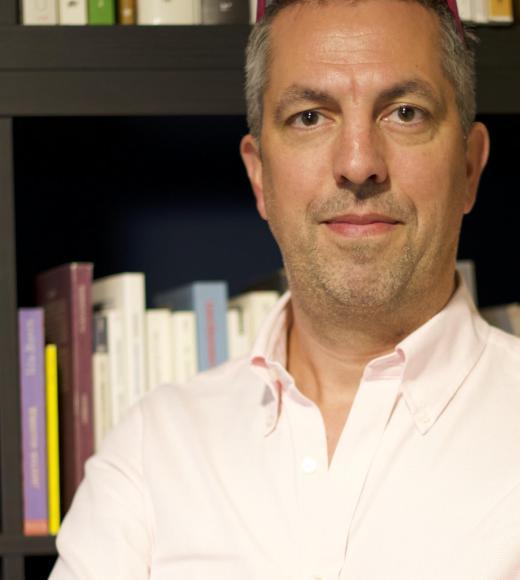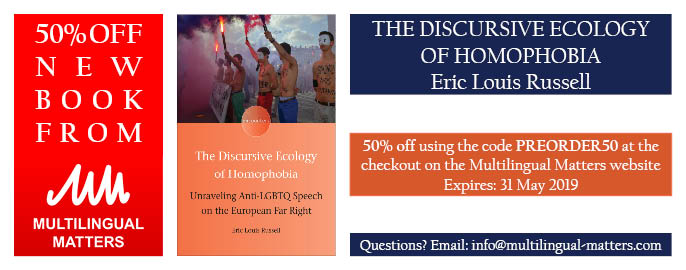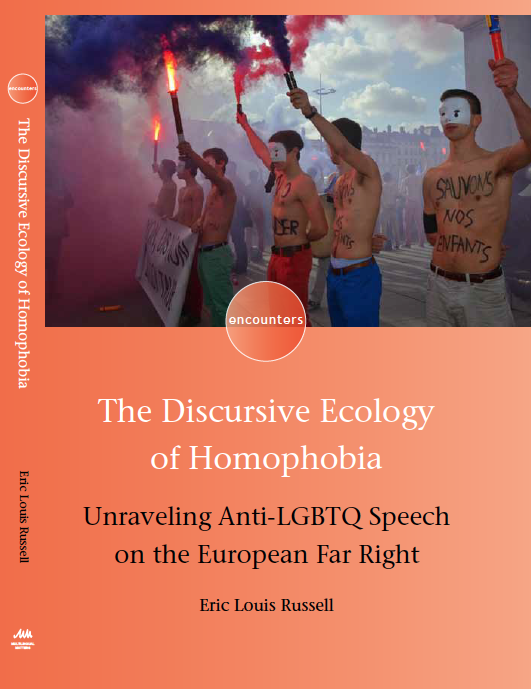
Position Title
Professor of French & Italian
Affiliated Faculty of Linguistics
Affiliated Faculty of the DE in Gender, Sexualities & Women's Studies
Education and Degree(s):
- PhD, University of Texas, Austin
Research Interest(s):
- Linguistic analysis of discourse practices, esp. social media
- Language, hegemonies, masculinities and sexualities
- Gender in/and/through language
- Taboo language (insults, offenses, censorship)
Course(s) Taught:
- FRE 109 - Phonetics & Phonology
- FRE 161 - Form, Meaning & Structure
- HUM 15 - Bad Language and Social Identity
- FRE 201 - A Critical History of French
Profile:

My research unravels the often unseen linguistic foundations that structure the way we conceive of our world, applying this to the languages and cultures I live and work in: English, Flemish, French and Italian (and sometimes German). I investigate the ways that language forms and structures are shaped by, and concurrently contribute to, cultural ideas, with a focus on the interplay between language, sexualities, and gender (especially masculinities). My forthcoming book, The Discursive Ecology of Homophobia: Unravelling anti-LGBTQ language on the European Far Right, is in press with Multilingual Matters (due out in May 2019). This dissects the linguistic and sociolinguistic environment of homophobic discourses, with applications to French, Italian, and Flemish corpora. I have also published articles in the Journal of Pidgin and Creole Languages, the Journal of Language & Sexuality, Language Science, Language & Gender, and the Journal of French Language Studies, as well as chapters in several edited volumes. My next projects look at questions of enlanguaging - how linguistic praxes are framed by and frame cultural knowledge and structures - interrogating masculinities and transgressions. One book-length project focuses on the enlanguaging of "maleness" in the Italian Mezzogiorno: femminelli napolitani, arrusi catanesi, and 'ndraghi. Another considers the linguistic practices of so-called Alpha Male groups in American English, asking how the subjacent structures of language contribute to and are constituted by wide social forces and factors.

Committees and Service:
- National Science Foundation, External Grant Reviewer
- Peer Review Committee, Vice Provost for Academic Affairs
- Steering Committee, LSA Summer Institute, UCD-2019
- Chair, Humanities Program
Selected Publications:
2019. The Discursive Ecology of Homophobia: Unraveling anti-LGBTQ language on the European Far Right. Bristol: Multilingual Matters.
2019. ‘Les Hommen’: The language of reactionary masculinity. Gender and Language.
2017. Style shifting and the phonetic performance of gay vs. straight: A case study from French. Journal of Language and Sexuality, 6.1:134-182.
2015. Sounding Gay and Sounding Straight: the performance of male sexual identity in Italian. Journal of Language and Sexuality4.1:30-76.
2012. Show Devant! Language fetishization and the micro-ecology of Ironman France. Journal of French Language Studies 22.3:447-466.
Teaching Experience:
Description for HUM 15
This course asks students to explore language – particularly, the sorts of language that are often deemed inappropriate, offensive, or otherwise taboo – and how the ways we ‘do this sort of language’ construct our and others’ social identities. We will peel back the layers of language practices, from the words we use for body parts, to the jokes that might offend, to the ways we insult, asking what we can learn about our society, the identities that are part of it, and issues such as power, privilege, and discrimination.
In this class, students will be exposed to a number of approaches to the question of how language shapes our lives and how we shape language, drawing broadly from across the humanities and humanistic disciplines (discourse analysis, philosophy, cultural studies, sociolinguistics, etc.).
Among many of the questions we will explore are the following:
- How and why do we assign value to language forms? Why is f**k or a** judged to be a swear word, but not fudge or butt, darn or heiny?
- How do words like illegals or terrorists reflect our society’s construction of power, inclusion, and privilege? And why is it so difficult to come up with an offensive word referring solely to those who identify as white/Caucasian?
- How do words like f**kboy and pu**y reflect our expectations of masculinity? What do taboo words like c**t or b**ch tell us about our expectations of women?
- What sort of language knowledge allows us to understand dialogues like the famous Donald Trump-Billy Bush tape as anti-female? And why do so many people – including many liberals – see this as an example of “locker room talk,” rather than something more systemic?
Description for FRE 201
This seminar is intended to frame two scholarly moments: one, an exploration of the social history of the French language, especially focusing on the emergence and cohesion of this as an anthropological and epistemological ideation; and two, an unraveling of the socio-cultural forces that served to construct this episteme and to promote this cohesion, frequently at the expense of other language communities and their cultures/practices. We will interrogate how French emerged and came to take its cultural, political, and linguistic form, and how this trajectory can help us understand contemporary issues surrounding language in society, more broadly.
Rather than only concentrate on dates and events in the history of French (we will also do this, if only as a type of baseline), we will interrogate historical pathways and outcomes as intrinsically bound up in extra-linguistic power structures and cultural institutions. The readings of this class reflect our dual objectives: Lodge will serve as a reference and jumping off point for the discussion of historical moments, allowing us to describe language within and across historical moments with appropriate terminology and concepts; Heller & McElhinney will frame our examination and re-examination of how such moments and the forces contributing to them can be critically interrogated and the power structures contributing to them made clearer.
A tertiary, but equally important objective is the development of disciplinary writing practices. All students will be expected to contribute a term paper in which they delimit a question of sociolinguistic historic significance: this requires them to present basic diachronic facts, articulate a critical argument within the scope of the seminar and readings, frame a cogent argument pertaining to the political and social significance of the moment/moments in question, as well as relevant actors and forces, and engage with this in a way that reflects appropriate disciplinary postures. This is intended to give students practical experience with the type of scholarship undertaken in the course, while also providing a chance to hone writing skills and develop solid scholarly habits.
Current Projects:
The Linguistic Foundations of Hegemonic Masculinity in America: Unravelling Alpha Male discourses
- Linguistic examination of the discourse practices surrounding ‘Alpha Males’
- Culturally-seated analysis of contemporary practices of neoliberalism, American masculinity, and sexual/gender hegemonies
- Description and analysis of the ‘Be Alpha’ socio-commercial group, ‘Gay-Alpha’ erotica fiction, and Alpha-for-Women self help
- Prospectus forthcoming (anticipated late 2019/early 2020)
Enlanguaging transgressive masculinity: (Con)structuring the linguistic self in the Mezzogiorno.
- Theoretical exploration of ‘enlanguaging’ (viz. embodiment), the making real by making linguistic
- Methodological extension of unraveling approach to discourse practices surrounding transgression and masculinity
- Intersectional approach to understanding the linguistic foundations and emergent qualities of identity construction
- Application to the analysis of three case studies from Italian Mezzogiorno: Catanese arrusi, Neopolitan femminelli, Calabrian ‘ndragni.
